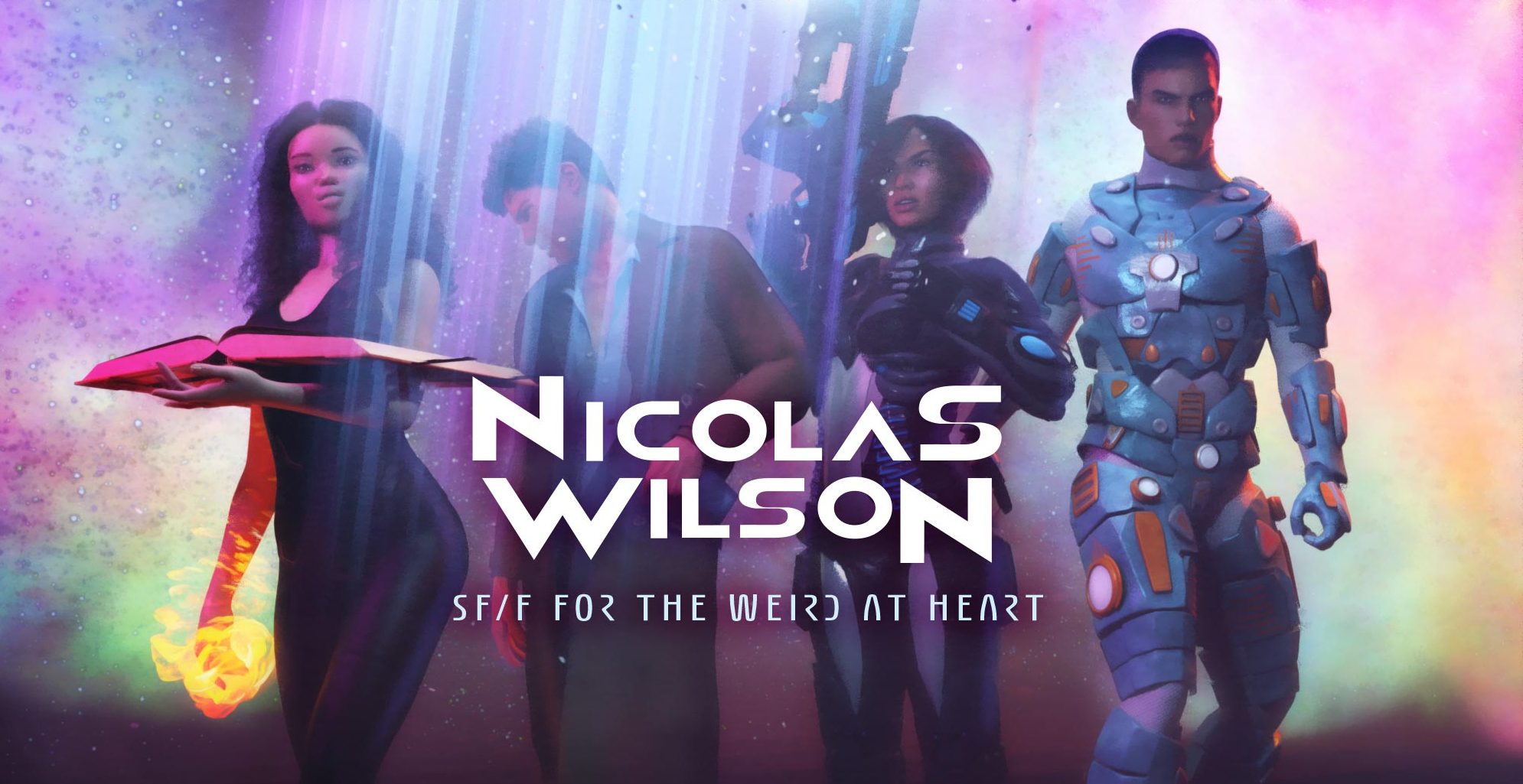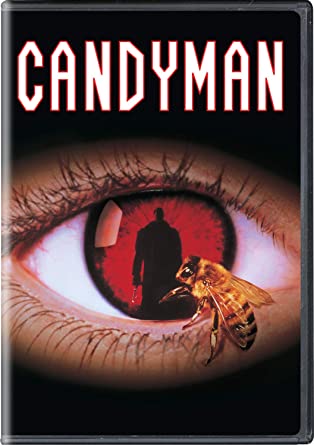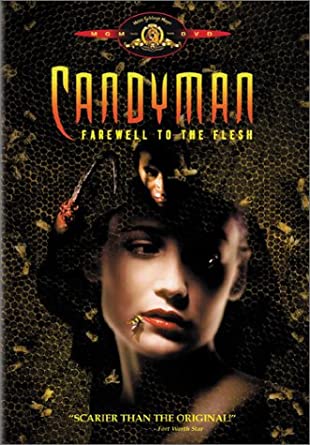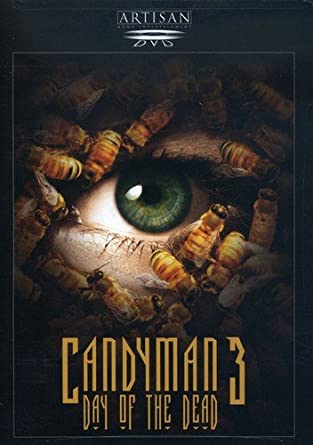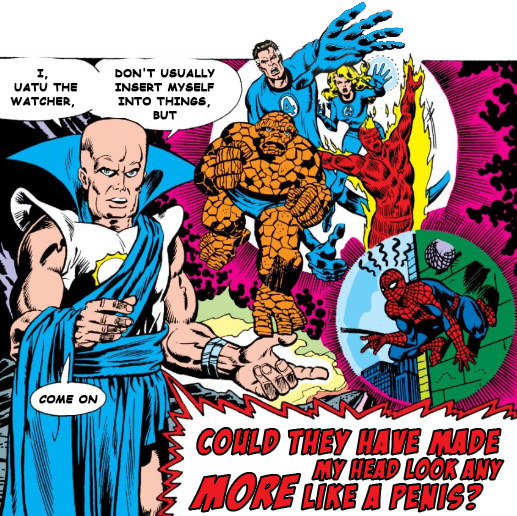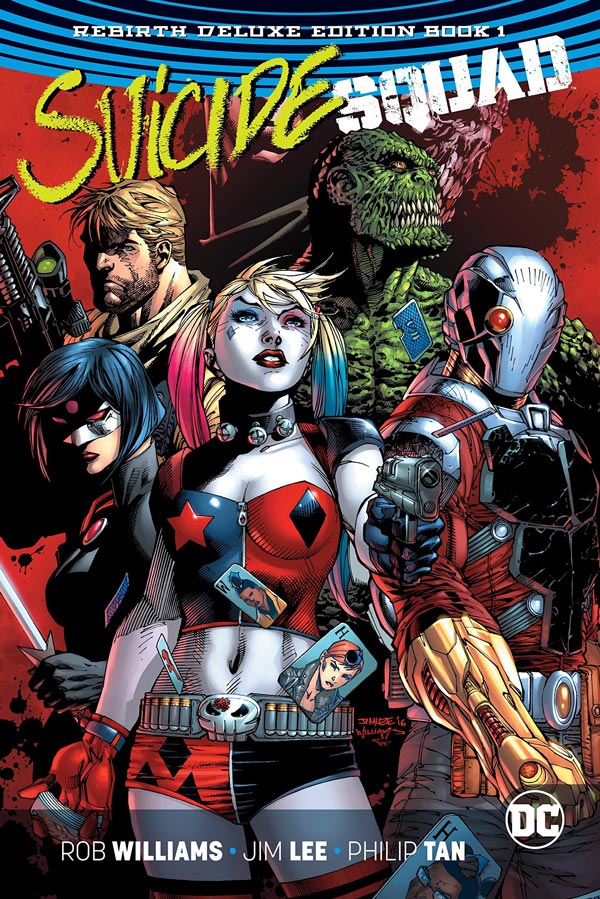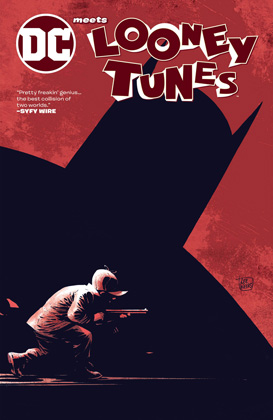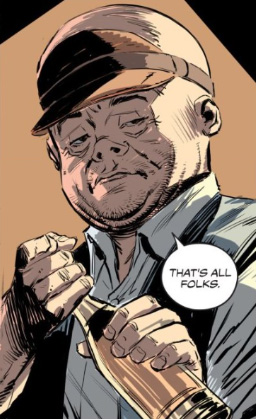Okay… so, apparently I somehow got it into my head that Hawkeye was premiering today. Wrote it on my calendar and reviewed the 500+ page Matt Fraction series that I think is likely to form the backbone of the series… only to discover I was apparently 3 months early, and instead have nothing to post today. Apparently Candyman is in theaters. In general, I’d be thrilled for you to support it, except that right now, given Delta, you might kill someone. So maybe don’t.
Instead, you can come back Friday and watch me flail writing a last-minute review up for the original movie (or if I get wanged in the head by a boomerang arrow, maybe even the whole trilogy; author’s note: please do not fire boomerang arrows into my home in an attempt to get more content). Maybe after you can go watch the trilogy, instead. Just don’t go watch a movie in a theater right now. Even vaccinated, even masked, it’s just too much of a risk to the vulnerable, including kids. Even if the new Candyman is the Citizen Kane of bee-based hook-killer horror movies riffing on Blood Mary (and I genuinely hope it is), it’s not worth contributing to somebody’s death.
UPDATE
Because you were all good kids and nobody fired a boomerang arrow into my home, and because I’m a workaholic, I reviewed the original Candyman trilogy, with a little extra sweet for you sweets (I know the context of that in the movie, but I promise you I’m not threatening to smother any of you in honey; my wife expressly forbade it, before I would have even thought to ask, which I think says more about them than anyone).
Relevant Review: Candyman, Candyman 2: A N’awlens Candyman Do, Candyman 3: Candymanliest
I’m pretty sure listing out the titles like that doesn’t earn me a stabbing, but death by Tony Todd’s a pretty good way for a (sometimes) horror writer to die. Not that I’m fetishizing being penetrated by Tony Todd or anything… yeah, you’re the weirdos.
But as of this writing, the entire original trilogy is available to stream for free (provided you’ve got a handful of streaming subscriptions), so save your kids and immunocompromised loved ones the exposure and stay in. And as a bonus, you can even watch in the buff without anyone making uncomfortable Peewee Herman references.
Candyman 1 (Free on Peacock)
Candyman has a pretty amazing pedigree. It’s based on a short story by Clive Barker (he of Hellraiser, which impressively turned BDSM from odd to horrifying, also writer of the pretty good Book of the Arts, the comic adaptation I’ll probably review when given half a chance… though maybe this was that chance? Maybe I’ll have to do a second review this week…); as with everything Barker, it has to come with something of a content warning, because his exploration of violence and horror tends to have a sexual tinge- likely the product of growing up a gay man in a fairly homophobic America. It’s got haunting music by Phillip Glass, which elevates virtually any scene it’s used in, and builds what could have been a memorable B movie to iconic. Tony Todd, Xander Berkeley, Virginia Madsen… the main cast is really solid. And it has Ted Raimi as a horny, leather-clad bad boy (the role he was born to play). Even the director (who also wrote the screenplay), Bernard Rose, did Immortal Beloved.
Tony Todd deserves a special shout-out. He is covered in bees in some of his scenes, and these were the bad old days before CGI, so those are live bees.
I’m not even sure that the caveat needs to be repeated at this point, but the first Candyman is a product of its time. I even think its heart’s in the right place- which is why I think Jordan Peele chose to give it a proper sequel as part of his ascendency- for its time it is a remarkably socially conscious tale, pushing back against some of the worst stereotypes and stigmas against black people, even while working hard to show some of the plight of ghettos like the Cabrini Green of the 90s. Rose deserves some credit, for relocating the story to Chicago from Liverpool; America’s complicated racial history adds greater texture (and danger), and I have to assume was an intentional attempt to wrangle empathetically with a tough subject.
Such wrangling isn’t without its pitfalls. The sympathetic single mother of color presented in the film, played by Vanessa Williams (just not that Vanessa Williams), speaks in a very broken, Ebonics-inflected patois (though I think it’s more a white writer’s tin-eared imitation of African American Vernacular English than true representation of AAVE). I imagine the idea is to portray even her as human and deserving respect and dignity, that you don’t have to speak English properly to be worthy, but that it hews too close to stereotyped language and presentation in this respect muddles the well-meant message, if only a little. And it’s certainly better than the respectability politics variant would have been, where only Madsen’s black friend who is also an intellectual deserves to be seen as human for having risen above such a station (I feel gross just typing that out, so hopefully it illustrated the point enough to be worth the bile rising in my throat).
Bizarrely, Eddie Murphy was originally chosen for Candyman, but they couldn’t match his price for a relatively low-budget horror movie. I really hope we figure out interdimensional travel (or at least TV), because I desperately need to see that version, especially if we could find one where Madsen was replaced by Sandra Bullock due to scheduling conflicts.
What I think works best, though, is how slowly the film burns. Sure, you see an urban legend telling of a murder attributed to Candyman, but the film is firmly set in our real world, with the dangers being the very real ones you’d find in the worst parts of any city. The first half of the movie is about setting the mood, building a lived in life for Virginia Madsen without anything supernatural happening at all. Even once that starts, it feels like it could be attributed to the aftermath of a concussion- and a mental break brought on by traumatic experiences. The movie plays it close to the vest whether or not there’s anything sinister happening at all, rather than a woman lashing out violently during psychotic episodes- but because we spend so much time living inside of Madsen’s head, it’s our life that’s unraveling, the fragility of our own existence exposed. And when the movie refuses to give Madsen answers, perhaps gaslighting her, it does so to us, too.
It’s really not until Madsen calls Candyman a second time that we actually see his (no hook pun intended) handiwork. Even then, we could just be watching her shattering identity from her perspective, justifying her own violence as belonging to a ghost. Hell, even “It was always you, Helen,” could refer both to her being the reincarnation (or whatever) of his doomed love but also be an indication that Helen was always the source of the slayings, that she was always the monster. Regardless, she rejects that violence when awake, risking herself to save the missing infant hidden at the bottom of the bonfire’s kindling. I think this idea is further bolstered when the priest says that despite her deeds, in her heart she desired to do God’s will.
There’s even an interpretation of the movie where the real monster is the impact of racialized violence on the supposedly civilized, that anyone who truly attempts to reckon with the history of racial violence in this country has to be driven mad and murderous by it- or they already were mad and murderous, and willing to take these instincts out on the people of color we as a society structurally oppress.
Candyman 2: Farewell to the Flesh (Free on Amazon Prime)
The sequels, by contrast, are largely forgettable. I imagine some of the proposed prequel made it into the sequel, since Rose had originally intended to focus on the slavery-era romance origins of the ill-fated central couple, and Farewell to the Flesh is set in New Orleans to be near Candyman’s origins. This is fairly questionable, since this movie retcons Candyman into a slave; in the original he was free and educated, a Black painter who fell in love with a white woman at a time that was a potentially deadly mistake. I’d imagine the instinct goes towards wanting to make the story about American racism’s original sin, but it waters down the message, to me, in effect saying slavery is the only racism that matters. I suspect that’s why the new movie drops these sequels from the canon. Though… I have to say that the early CGI shattering of Candyman is almost worth the price of admission (in the same way that the end credits music of Maniac Cop 2 justifies the movie). Some of it is practical, and actually kind of cool… and the rest is laughable, as is the general thrust of the ‘Candyman’s soul is in a mirror, so you beat the invincible monster by smashing it’- it would be the equivalent of defeating Friday the 13th’s Jason by stubbing his toe.
Candyman 3: Day of the Dead (Free on Hulu)
Seriously, though, what the hell is with this series and retconning Candyman’s origin? In the three years since the last sequel, apparently they changed it so he wasn’t killed propped against a tree, now he’s tied to it. I don’t know what that does, other than maybe tweak Christian sensibilities because now it’s kind of like a crucifixion.
I’m also starting to get uncomfortable with the Candyman’s fixation on attractive blondes. If it was just that, I wouldn’t care; but it’s that it feels like we’re still playing on same sexually charged Dracula tropes as the first movie, despite the fact that in the last two movies Candyman’s interests are focused on his direct descendants. And I mean, technically, after so many generations their kids wouldn’t be total mutants, and he’s a ghost so likely producing offspring isn’t the point, anyhow, but the weird, pseudoincest is creepy, and not in the way you want from your horror movies.
This movie is a shipwreck of trains, somehow. To maximize their measly budget, the same characters get killed multiple times in hallucinations or dream sequences or something (it’s really unclear). And the nudity feels gratuitous. I’m not a prude, not by any stretch; if we’re honest I’m more of a rhyming letch. But just because we can have a naked character doesn’t always mean we should. Watching a woman portraying the same character as in the last film (replacing a much better, but likely much pricier, actress) walking around naked with her throat slit… like who is that for? Sure, every budding Ed Gein in the audience was aroused, but why? And because if you’ve watched the previous movie you likely have rapport, that scene is tragic, because her character deserved better than to be a titillating corpse. Yeah. Only if you’re really hard up should you watch the third one, and I mean that in virtually every sense.
Candyman (2021)
So, yeah, I like Candyman. I can even appreciate what Farewell to the Flesh was doing, even if it didn’t quite have the caliber of talent the original did, it’s a pretty solid B effort following what is a horror classic. The third is trash, and not even the kind that finds a way to be fun. You just kind of feel bad for watching it. So probably don’t.
But having revisited this series, I can say I sincerely hope a well-done sequel, as I can only assume Nia Dacosta’s movie will be, can live up to the legacy of this franchise, in particular its first film. But seriously, don’t further structural oppression by seeing it in theaters right now. As we’ve seen throughout this pandemic, economic and social inequalities mean any negative impact will hit hardest those least able to withstand it, in particular people of color. I’m not saying if you do see it in theater Candyman will get you. I’m saying you’ll make Candyman cry. Bees. Because I’m pretty sure he cries bees. His bee tears may get you. I don’t honestly know enough about bees to bee able to say.
So stream the original from the comfort and safety of your own home, instead, until we can all safely and responsibly see the sequel, either together or at home.
